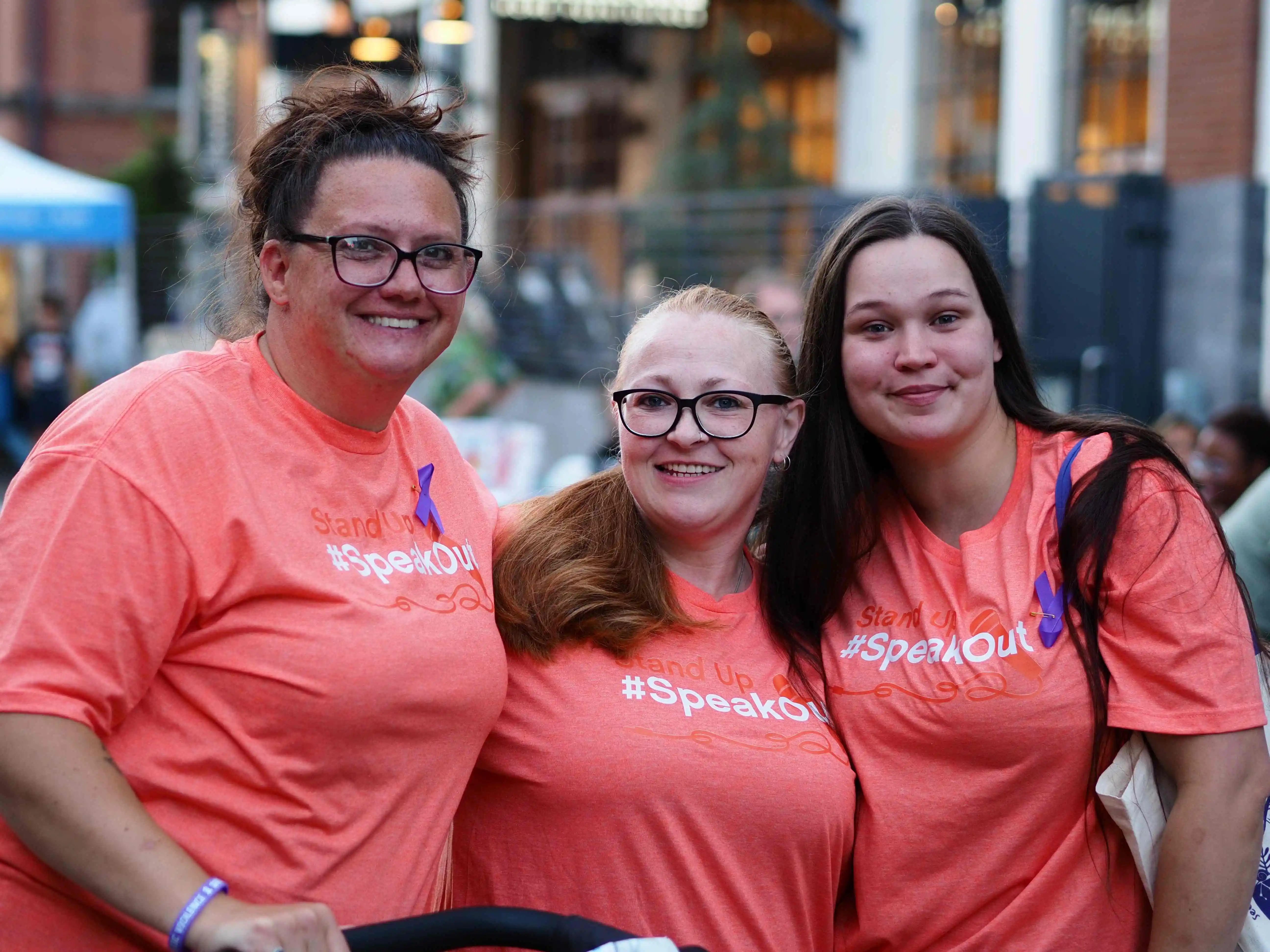Ending a relationship with an abusive partner is no easy endeavor. It takes an average of seven tries to leave an abusive partner, and the journey is filled with intense grief and loss. It is normal to doubt yourself, and to waiver in your decisions. When this happens, resist the urge to judge yourself and look for ways to silence your negative self-talk. Be gentle with yourself and celebrate the small wins along the way as you navigate this difficult path.
Know that only you can make the best decision for yourself and your family. In this article we spoke with several parents who have or still are co-parenting with an abusive ex-partner. We hope their insights can help you navigate these trying times for your own circumstance.
It is often difficult to even begin to imagine what co-parenting will look like, especially if you’ve not left yet or are just starting the process. We know - we’ve been there. We want you to be equipped to craft the best life going forward for you and your children.
Expectations as You Leave or Prepare to Leave
Be prepared for your ex to become even more controlling once they know you are leaving or have recently left the relationship. The goal of abuse is to control and hold power over you. By leaving, you are taking back your power and reducing their control. Expect your efforts to take back your life to be met with increased frustration and potential retaliation from your abuser. This is not your fault, but is an expected response.
It is natural to feel intense grief, pain and anxiety about sharing custodial time with your child’s other parent and former in-laws. Many times, an abusive partner has no interest in taking an active role in the children’s lives during a relationship, but after separation, the same person becomes very possessive about exercising their custodial rights. This may be a painful adjustment for you to spend significantly less time with your children, at the same time that you are grieving the loss of a committed relationship.
During times of loneliness, reframe your mindset to focus on enjoying spending the time you do have with your children, rather than grieving the time that has been lost. This change in mindset will not happen in a day, but seeking therapy, self-help podcasts and books can guide you to reflect on your life's changes in a more positive way.
It can certainly feel disorienting when they are not with you and are with your ex. Resist the urge to focus on the time that you DON’T get to spend with them. Instead, maximize the time you DO have with them. Do things with your children that will build memories - for them and for you. Fill the time they are not with you with rebuilidng the life you lost or dreamed of having. Arrange get-togethers with friends. Volunteer for a charity. Get outside or explore an unfamiliar part of your city or town. Engage in your favorite hobby. Look at this time as YOUR time. Take the opportunity to care for yourself and grow in your resilience, strength, and confidence.
Lessons from Other Survivors
1. Gain comfort in doing parenting things without your kids.
Yes, this is a unique approach, but it allows you to feel in control of your role as a parent, even when the children are not with you. This may include attending your kids’ soccer games when they are with your co-parent. Doing so helps your kids stay connected to their community. With soccer you can cheer on their teammates and connect with other parents at the games and practices. Your abusive co-parent may prevent the children from participating in those games but remember, they can never prevent you from attending! By going to these events even when your children are not, you are signaling to them that being denied the ability to attend is wrong and subsequently they may be more likely to speak up about it as they get older. One survivor who embraced this approach now finds that parents will reach out to her to ask for the custody schedule to ensure her kids can attend birthday parties or other social events that the kids might miss out on if it’s a weekend they aren’t with their mother. Winning!
2. Seek out support groups, even those available online.
One survivor shared a Facebook group called One Mom’s Battle, which helps mothers in high conflict co-parenting situations. Social groups and support groups focused on co-parenting with an abusive ex-partner go a long way toward helping you feel less alone in your situation. The non-judgmental spaces also empower you to speak your truth. Find a support group or social support from friends or others in a similar situation. Involvement in a group not only may be useful to you, but you have the opportunity to be helpful to someone else.
3. Lean in to your confidence as a parent.
Quite often, the personalities and inflexible perspectives of abusive co-parents are counterproductive to the day to day responsibilities of parenting. You may have been the primary parent before you left the relationship. After leaving the relationship, your co-parent may threaten to take that identity away from you. Know that if you maintain confidence in your identity as the primary parent even in 50/50 shared custody, the children can learn to see you the same way with patience and consistency. An abusive co-parent often shows up for parenting responsibilities in bursts of enthusiasm and excitement when it serves their convenience, and then drops off without any reason or communication when their real priorities take over. Over time, the children will understand which parent they can depend on more reliably.
4. Document the schedule details in email.
Put as many of the details and logistics related to the custody schedule, birthdays, school events, or doctor appointments in email rather than via text, phone call, or face-to-face conversation. It’s much easier to provide documentation of an agreement or plan this way when or if things go sideways.
5. Consider duplicating important household items for the children.
Parents navigating divorce and separation are rarely prepared for the day to day reality of keeping track of shoes, lunch boxes, water bottles, homework and other necessities to carry out their daily routines. These chores are difficult enough when children are raised in one home, and it becomes more complex when children are raised in two homes within the context of a dysfunctional co-parenting dynamic. If not handled properly, the children are caught in the middle and forced to take on the burden of their parents’ inability to cooperate peacefully.
To alleviate this stress, consider having extra supplies for the kids at your home. It’s inevitable that at some point, your child will forget to bring their soccer cleats or their swimsuit from one parent’s house to the other on switch day. Rather than put the pressure on your child to keep track of their belongings in two homes, purchase additional water bottles, stuffed animals, jackets or whatever is needed to help ease the stress for your kids. Going back and forth between parents is physically and mentally taxing. One survivor noted that her children’s entire life experience was like that of living in two AirBnbs by rotation. Neither place felt like a permanent home to the children. Simplifying the children’s lives and ensuring they have the tangible things they need no matter where they are will help ease those transitions and limit the anxiety for your children.
Final Thoughts
There is no one size fits all roadmap when it comes to navigating divorce, separation, and co-parenting in the context of an abusive relationship. The breakup of a family unit is a significant life change that often leads to a change of homes, friendships, lifestyle, financial stability, and more. For many, this change may mean one is required to enter the workforce for the first time after an extended time away for caregiving responsibilities. It is normal to feel grief, pain and worry on this journey, but know that you are not alone.
Know that through these struggles, you will one day find confidence, independence and greater autonomy over choosing the direction of your own life’s purpose. This is a worthwhile endeavor that will have a lasting impact on your children’s lives as they navigate their own relationships one day. Remember, there are others who have navigated this path successfully before you, and you can learn from their experiences. FinAbility has resources to help you on your journey to financial security as you rebuild your life after abuse.
%20(2).svg)









